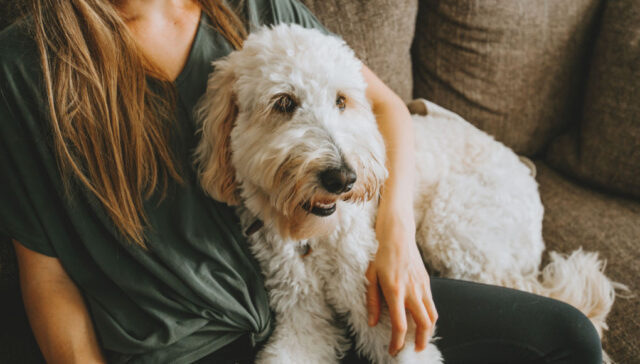
Table of Contents
- Dog Sitter List: Start by Gathering All Essential Information
- A pet safety plan
- A copy of all your pet's immunizations
- A complete list of all pet medications
- Your pet's microchip information
- Proof of all local licensing and registration numbers
- An updated photo and visual description of your pet
- Include a profile of every pet
- Detailed instructions on administering all medications to your dog or cat
- Always Stock Up on Pet Supplies
- Create a List of Household Rules for Your Pets
- Explain the House Information for Your Dog Sitter List
- Things to Consider Before Hiring a Sitter
- Dog Sitter List: Conclusion
While we'd always like to bring our pet along when we travel, there are plenty of occasions this isn't possible.
Thankfully, hiring a pet sitter can keep things less stressful for everyone at home while easing your mind when you're gone.
To ensure everything goes as smoothly as possible, always leave a comprehensive list of everything your pet requires while you're gone, including care instructions and pertinent information for the pet sitter.
To help you create a comprehensive list of everything your dog might need to stay happy and healthy during your trip, here's the ultimate dog sitter list:
Dog Sitter List: Start by Gathering All Essential Information
One of the easiest ways to prepare for your departure is to create a folder with the essential safety information for your sitter.
A folder ready and available allows your contact to reference everything they need at once, should an emergency arise.
Here's what you should include in your emergency folder:
A pet safety plan
The pet safety plan is a quick reference sheet for your dog.
This portion should always include:
- A list of emergency contacts (and their relation to you)
- Veterinarian phone number and address
- Emergency veterinary service provider
- Local police phone number
- Health concerns of your animals
- Any pet insurance information
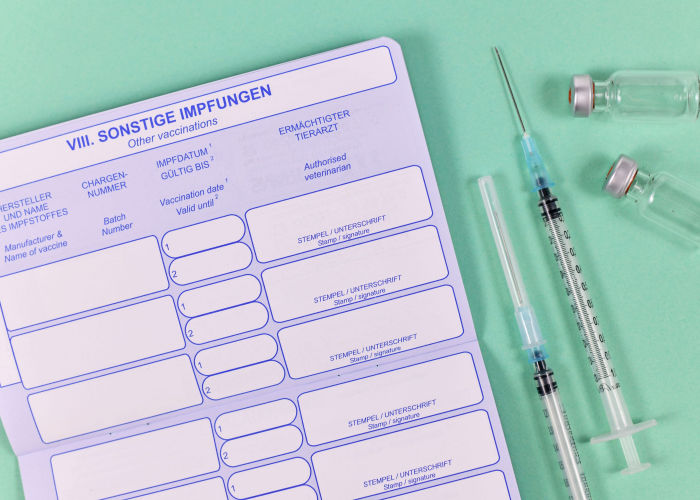
A copy of all your pet's immunizations
Always include a copy of your pet's latest vet records, immunizations, and vaccine proof.
Make sure your pet has a collar with updated vaccine tags on it should the pet sitter have to walk the dog during your absence.
A complete list of all pet medications
If your animal regularly takes any medications, include the name of the medication, the dose, and the administration requirements.
Include a specific location for storage (especially if the drug requires refrigeration).
Your pet's microchip information
If your pet is microchipped, always include the emergency contact number for the service.
Include a brief letter authorizing the individual to contact the service on your behalf should the pet go missing.
Proof of all local licensing and registration numbers
Many municipalities and regions require all animals to hold an active registration.
Include a copy of your registration and license in the file.
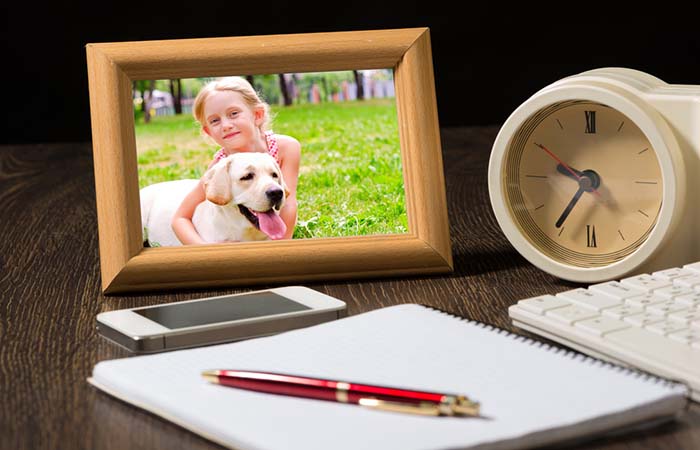
An updated photo and visual description of your pet
No one likes to imagine their pet going missing while they're away but acting quickly is the easiest method of reunification.
Always include a recent photo of your pet and a written description of the animal.
Include any specific markings or identifying features that might help distinguish your dog or cat from another.
Include a profile of every pet
Every pet on this planet is unique, with individual characteristics and personalities.
You know your dog the best, so spend a few moments drafting a mini-biography of your animal.
The idea is to help your pet sitter understand your pet, including his routine and personality.
Here are a few things to include in the profile of your pet:
- Your dog's current routine, including mealtimes and walks.
- If your dog is crate trained, mention this in the letter. Also include sleeping arrangements, whether your pup stays on the floor, in his bed, or snuggled up with you.
- Explain your dog's daily food intake, including wet, dry, raw, and treats. If you do not allow “human” food, explain this in detail.
Remember to include the feeding frequency, especially if your dog follows a unique schedule.
Detailed instructions on administering all medications to your dog or cat
Explain how each drug is given and how to convince your pet to take them.
If you tend to hide the dog's medication in a piece of cheese or meat, explain how to do that without your pet spitting it out.
Talk about your dog's personality.
Take a few moments to explain how your dog interacts with people, animals, and other dogs.
Do they struggle with separation anxiety when left alone? Maybe they aren't a fan of the mailman or squirrels.
The more you explain, the easier it will be for anyone watching your pet overall.
Explain their favorite hangouts.
If your dog is used to visiting the dog park down the road every morning, let your pet sitter know what to expect.
Ensure you include directions to your pet's favorite locations and any additional accessories they might need if they visit.
For instance, bringing your dog to a leash-free park might be a great idea, but if your pet sitter needs a high-value treat to lure them out of the park, it's better to mention it.
Likewise, if walking with your dog requires an additional Halti or extreme upper arm strength, give the pet sitter a heads up.
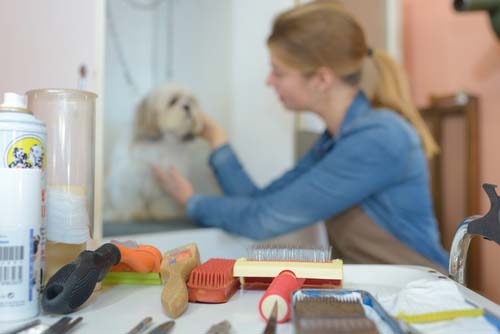
Always Stock Up on Pet Supplies
Make sure your pet sitter will have everything they need for your four-legged friend while you're away.
Your dog sitter list should include an accurate list of everything your pup likes to snack on, but it should also explain where these items are within your home.
A good rule of thumb is to have enough supplies to last your trip, plus an extra three days.
Supplies should include the following:
- All food (wet food, dry food, and treats) and dishes
- Any medications labeled and accessible
- Harnesses, collars, and leashes
- Toys and chews for downtime
- ID tags with current phone number
- All grooming supplies (brushes, towel, shampoo, skunk removal spray, toothbrushes, and ear cleanse).
- Pet-safe treats for spoiling your dog while you're away (look for natural products like pig ears, venison, antlers, and duck feet).
- Cleaning supplies in case of an accident. Create a small basket of cleaning supplies your pet sitter might require while you're out of town. Fill the basket with paper towels, an all-purpose cleaner, an enzymatic cleanser, baking soda, and extra soap.
- All pet carriers or seatbelt restraints
Create a List of Household Rules for Your Pets
Every home is different, especially regarding household access and accessibility for your pet.
If there are any rules you expect the pet sitter to follow, always include those in your folder.
Likewise, let your sitter know if there are any areas your pet isn't allowed to be in.
Consider the following questions when writing out the rules of your home:
- Where does your dog use the bathroom during the day (outside in the yard? On a walk? In the house?) if he needs to relieve himself?
- Is your pup allowed on the furniture?
- Can your dog snack on human food?
- What about table scraps?
- Does your dog get treats freely, or do you require tricks or training first?
- If there's an emergency, would you instead the sitter contact you by telephone or text first or treat the ailment regardless of cost?
- How long can your dog be left alone without requiring care?
- Is the dog okay in the car?
- Does the dog require any protective clothing or accessories during inclement weather?
- What happens if the sitter needs additional supplies? Will those be reimbursed when you return, or will you leave an emergency card?
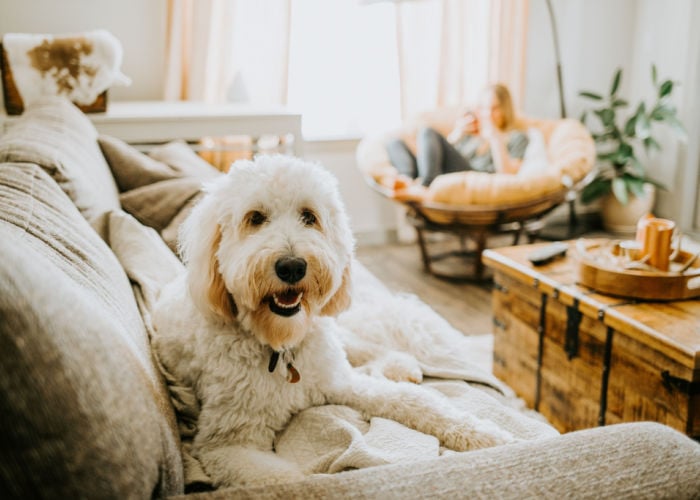
Explain the House Information for Your Dog Sitter List
When you're traveling, the last thing you need to worry about is someone trying to navigate through your home.
Before leaving, leave detailed instructions about the house.
Ensure you include the Wi-Fi password and security codes or anything electronic within the home.
For homes with hot tubs or pools, detail whether the sitter can use them (and if your pet is allowed in).
Explain the cleaning process or how to turn the systems on and off.
Detail any at-home services you have scheduled throughout the week, including any cleaners, maintenance, landscaping, or personal assistants that might visit.
Try to avoid surprise visits for your pet sitter, as this can cause unnecessary stress and anxiety for everyone involved.
If your pet sitter is going to take care of the home while you're away, explain where to check the mail (if it's not a mailbox out front) and how often the pet sitter should maintain your gardens or plants.
If your house has specific garbage and recycling days, include those in the note.
Consider how your television works and whether there are different settings for different features.
The same holds for any stereo system or gaming console.
Is the pet sitter allowed to purchase movies or shows from streaming networks while you're away?
Elaborate on anything off-limits within the home.
Depending on the duration of your trip, include instructions for the washer, dryer, dishwasher, and vacuum.
Things to Consider Before Hiring a Sitter
It's critical to research potential dog sitters before leaving your canine companions with someone.
You want to ensure the person you're using is safe, reliable, and dependable—not an easy task when so much is on the line.
Here are several essential questions to ask anyone who will be sitting for you while you're away:
Do You Have Insurance?
Although not all dog sitters offer insurance, it's always better to know whether the individual you're hiring is insured.
Professional dog-sitting businesses will always provide comprehensive insurance, protecting you and your animals in an emergency.
Will You Meet My Animals First?
You need someone to care for your dog as much as you do when going away.
Taking the time to meet your dog is critical in that care, especially when your pet isn't familiar with them.
A dog sitter should always meet your dog in advance and get to know them before their stay in the home.
Doing so will ensure your dog is happy, calm, and settled for their stay.
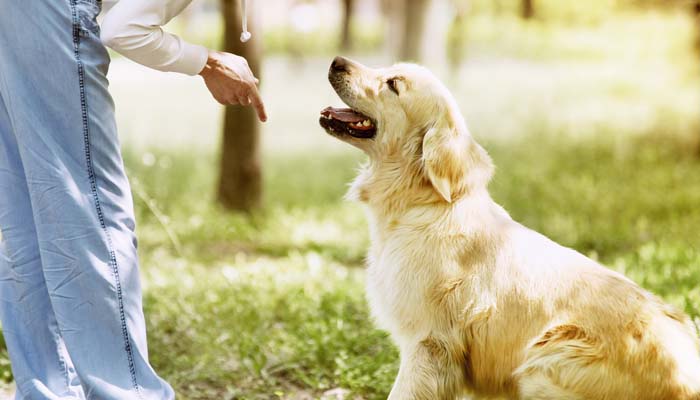
Talk to Me About your Experience
A dog sitter needs experience, especially if your pup requires medication or daily monitoring.
Always ask the dog sitter how long they've been offering their services and how often they offer dog and pet sitting.
Get to know the pet sitter personally to ensure your personalities match well.
Ask the potential sitter about her most demanding clients and how they provide a pet that is happy in their care.
Do You Have References Available?
Potential dog sitters should always have references and reviews available when asked.
Ask the potential sitter for a few names, phone numbers, and emails to contact before you secure their services.
You want to talk to several people and find out about their experiences (good and bad) before deciding.
Always ask the reference what type of dog they have, how long the sitter cared for their dog, and how they found the service.
Do You Charge Extra for Some Services?
There's nothing worse than booking a service to find out everything is added a la carte.
Ask your potential sitter what's included in their fee from arrival until your return home. If they offer a la carte services, ask them for a list of prices.
Before leaving for your trip, always get a quote for the pet sitting in writing, along with everything included in the price.
Although no one wants to plan for delays returning, ask the potential sitter what they would charge you for extra care should your plane get delayed.
RELATED: How Much to Tip a Dog Sitter?
Dog Sitter List: Conclusion
Creating a comprehensive pet sitter list is the easiest way to incorporate someone new into your home while you're away.
Having everything broken down into sections takes the guesswork out of your pet, particularly regarding routine and feeding.
Although every pet sitter will try to follow this ultimate dog sitter list, they may need to adjust the schedule according to their daily commitments (as only a few will continuously stay home while you're gone).
Screening and vetting the individuals you allow in your home is more than just a security option; it's also essential for the health and well-being of your pets.
Talk to your sitter about any questions or concerns ahead of time instead of trying to wait things out.
When in doubt, it's easier to find a new sitter than to leave your pet in the care of someone you don't trust.












